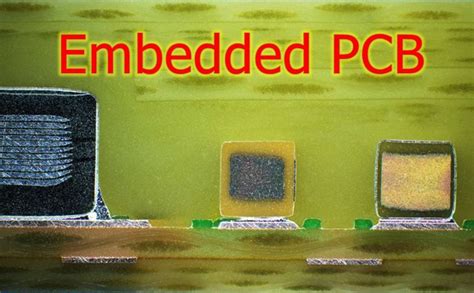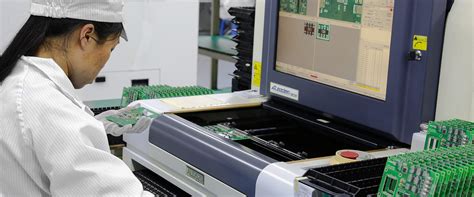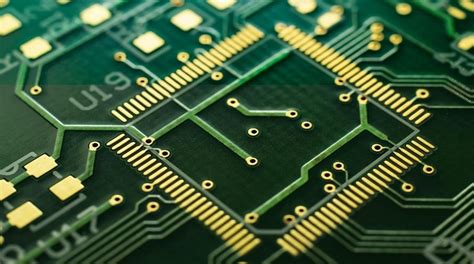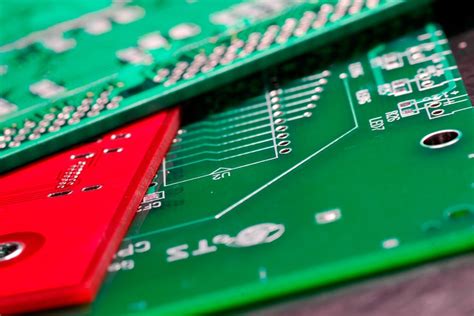Choosing the Right Embedded PCB Manufacturer for Your Needs
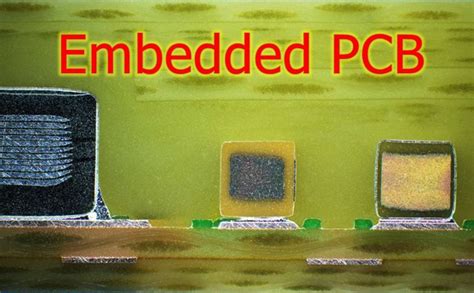
Key Takeaways
When you embark on the journey to select the right embedded PCB manufacturer, there are several pivotal insights to keep in mind. First and foremost, familiarize yourself with the nuances of pcb manufacturing to ensure that your manufacturer aligns with your specific project needs. It’s crucial to thoroughly evaluate pcb manufacturing companies based on their quality standards and technological expertise. Ensure that the providers you consider are equipped with advanced capabilities, as these can significantly impact not only the performance of your PCBs but also their overall pcb manufacturing cost.
As you assess potential partners, prioritize firms that emphasize exceptional customer support. Collaboration can dramatically enhance your design iterations, leading to better outcomes in your pcb manufacturing business. It is advisable to develop a matrix or table to help you compare various manufacturers on critical factors such as quality assurance processes, turnaround time, technological innovations, and pricing structures. Consider it a systematic approach that will lead you toward making an informed choice that meets your production and design requirements effectively.
Here’s an example of how such a comparison table can be structured:
| Manufacturer Name | Quality Standards | Technological Capabilities | Customer Support | Estimated Cost |
|---|---|---|---|---|
| Company A | IPC-6012 | Advanced SMT capabilities | 24/7 support | $$ |
| Company B | ISO 9001 | Flexible circuit options | Business hours | $$ |
| Company C | IPC-A-600 | High-frequency technology | Custom solutions | $$$ |
By paying attention to these aspects, you not only cut down on risks but also lay a robust foundation for future collaborations in embedded PCB production.
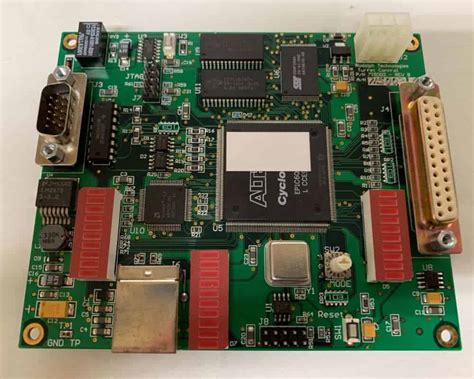
Understanding Embedded PCBs and Their Applications
Embedded PCBs (Printed Circuit Boards) represent a pivotal innovation in the world of electronics, providing a compact, reliable means to integrate various functions into a singular platform. In many modern devices, such as smartphones, smart appliances, and automotive systems, you will find embedded PCBs at the core of their functionality. Unlike traditional PCBs, which are typically mounted externally, embedded PCBs are integrated into the device itself. This allows for more efficient space utilization and can often reduce the overall weight of the product. Additionally, because they are designed for specific applications, such as IoT devices or wearables, these PCBs can contribute significantly to meeting custom performance criteria.
When exploring options among different pcb manufacturing companies, it is crucial to recognize that quality is of paramount importance; therefore, considering the pcb manufacturing cost in relation to the quality of materials and craftsmanship is essential for any successful pcb manufacturing business. You should ensure that your chosen manufacturer possesses a proven track record in delivering high-performance embedded solutions that align with your unique requirements. For example, if you’re developing a product where space constraints are critical, an experienced manufacturer can provide insights on design optimization to enhance functionality while minimizing size.
“Investing time in understanding your requirements will help you select an experienced manufacturer who aligns with your technical expectations.”
This understanding not only aids in optimizing performance but also translates into potential cost savings during production cycles. Therefore, grasping the nuances of embedded PCB applications can significantly enhance your decision-making process when selecting a partner in this competitive landscape.
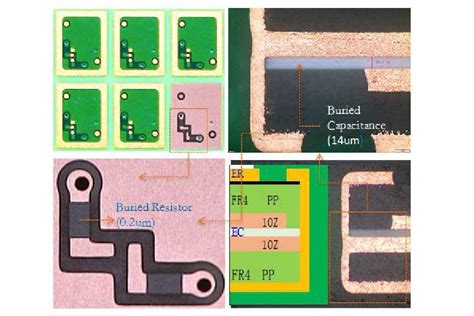
Key Factors to Consider When Selecting a PCB Manufacturer
When embarking on the journey to choose an embedded PCB manufacturer, there are several key factors you should thoughtfully evaluate to ensure that your specific needs are met. First and foremost, consider the quality of the products offered. You need to confirm that the manufacturer adheres to stringent quality standards in their PCB manufacturing processes, as this will directly impact your final product’s durability and reliability. Scrutinizing their certifications and track record can provide significant insights into their commitment to quality.
Next, assess the capabilities of various PCB manufacturing companies. Different manufacturers specialize in varying capabilities, from small batch orders to large-scale productions, so align their strengths with your project requirements. Additionally, inquire about their technological expertise; manufacturers who invest in advanced technology can enhance production efficiency, leading to better outcomes in less time.
Another critical aspect is customer support. An effective PCB manufacturing business fosters a collaborative environment where you feel supported throughout the design and production process. This kind of partnership is invaluable when navigating challenges or optimizing designs, ensuring you’re making informed decisions that benefit your project as a whole.
Lastly, consider the cost. While it’s important to remain mindful of the PCB manufacturing cost, prioritize value over mere affordability. Remember that selecting a manufacturer based solely on price could compromise quality or support down the line. Balancing these factors will enable you to select a manufacturer that best aligns with your operational goals while maintaining high standards throughout your production process.
Evaluating Quality Standards in Embedded PCB Production
When it comes to embedded PCB production, evaluating quality standards is of utmost importance. You need to consider the various quality assurance protocols that a manufacturer has in place to ensure that every PCB manufacturing batch meets your specifications. Look for certifications such as ISO 9001, which indicate that the manufacturer adheres to internationally recognized quality management practices. Additionally, you should inquire about the testing processes utilized during and after production. These might include electrical testing, thermal cycling, and other reliability assessments that help verify the durability and performance of your circuits.
Understanding how a manufacturer initiates quality control allows you to gauge their commitment to excellence. If you’re dealing with PCB manufacturing companies, it’s essential they offer a robust quality management system. Often, manufacturers provide documentation showcasing their compliance with industry standards, which can help reassure you of their credibility. This is particularly crucial given that superior quality directly influences the overall PCB manufacturing cost and contributes to the success of your pcb manufacturing business.
Ultimately, conducting thorough research into a manufacturer’s quality standards can lead you to make informed decisions about your selection process. By prioritizing manufacturers who demonstrate a strong commitment to quality, you can ensure your projects are completed efficiently and effectively while minimizing risk and potential costs associated with defective products. For more insights on reliable PCB production services, consider checking reputable sources like Andwin PCB.
Assessing Manufacturer Capabilities and Technological Expertise
When choosing an embedded PCB manufacturer, evaluating their capabilities and technological expertise is crucial to ensuring that your production needs are met. You should assess the pcb manufacturing processes employed by the company, as advanced technology can significantly impact the quality and reliability of the final product. Check whether they utilize state-of-the-art machinery and adhere to industry standards, as this can affect your overall project. It’s important to investigate the range of services offered by various pcb manufacturing companies, ensuring that they can accommodate both standard and complex designs tailored to your specific requirements. Moreover, familiarity with emerging technologies within the pcb manufacturing business signifies a manufacturer’s commitment to innovation, which is critical in a rapidly evolving market. You may also want to explore their experience with specific applications that align with your project goals. Understanding how a manufacturer tackles challenges and adapts their processes in response to client needs will provide insight into their reliability and capability in managing pcb manufacturing costs without sacrificing quality. This thorough assessment will help you make strategic decisions as you seek a partnership that aligns perfectly with your production demands.
The Importance of Customer Support and Collaboration
When choosing an embedded PCB manufacturer, it is crucial to recognize the value of customer support and collaboration. A reliable manufacturer’s commitment to these aspects can significantly impact the success of your pcb manufacturing needs. Effective communication channels help ensure that your design specifications are met accurately, reducing the risk of errors that could lead to increased pcb manufacturing costs. Furthermore, collaborative efforts allow you to tap into the manufacturer’s expertise, thereby enhancing the overall design process. This partnership can lead to innovative solutions tailored specifically for your project requirements. When you seek out pcb manufacturing companies, prioritize those that demonstrate strong support systems; they should be approachable, responsive, and willing to adapt based on feedback. Ultimately, a manufacturer who values collaboration is not just a supplier but a strategic ally in your pcb manufacturing business, helping you navigate challenges and optimize production efficiency.
Comparing Costs: Finding Value Without Compromising Quality
When navigating the landscape of pcb manufacturing, one of the most significant considerations you will face is the balance between cost and quality. It’s essential to understand that while pcb manufacturing cost might seem like the primary factor, choosing a manufacturer that prioritizes quality can lead to long-term savings and enhanced performance. Research various pcb manufacturing companies and assess their pricing structures alongside their commitment to quality. A slightly higher initial investment in a reliable manufacturer often means fewer defects and lower costs associated with repairs or replacements in the future. It’s crucial to evaluate what you truly need for your pcb manufacturing business; therefore, look for a company that offers robust customer support and flexibility in their services. This can help ensure that even if prices vary, you receive excellent value without compromising on the quality of your embedded PCBs. Make sure to seek out manufacturers who are transparent about their pcb manufacturing processes and who can provide detailed quotes based on your project specifications. Being informed will be key in selecting a provider that meets your operational needs while also offering competitive pricing.
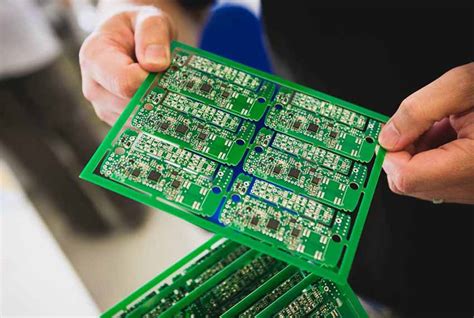
Case Studies: Success Stories in Choosing the Right Manufacturer
When it comes to pcb manufacturing, selecting the right embedded PCB manufacturer can be a game changer for your project. Consider the case of a tech startup focusing on smart home solutions. By partnering with an established manufacturer known for their pcb manufacturing business, they significantly reduced their product development cycle. The manufacturer’s expertise in cutting-edge technologies allowed them to implement advanced features without exceeding their budget, successfully navigating the challenges of pcb manufacturing cost.
Another compelling example involves a medical device company that prioritized precision and adherence to strict regulatory standards. Their choice to collaborate with a highly reputed manufacturer, with a proven track record in pcb manufacturing companies, ensured that every PCB met stringent quality benchmarks. This strategic decision not only streamlined compliance processes but also led to timely delivery, ensuring that their innovative medical devices reached the market ahead of competitors.
These success stories illustrate how careful consideration of your chosen manufacturer’s capabilities in embedded PCB production can distinctly influence your project outcomes. By understanding specific needs and evaluating potential partners through real-world outcomes, you set the stage for successful product launches and long-term partnerships.
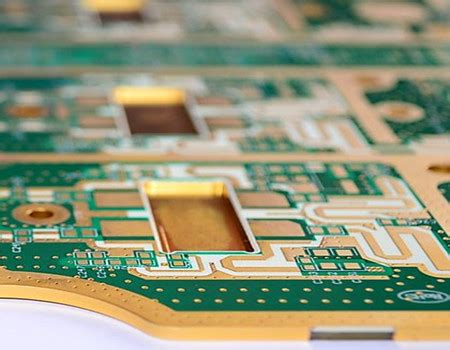
Future Trends in Embedded PCB Manufacturing: What to Expect
As technology continues to evolve, the landscape of embedded PCB manufacturing is also undergoing rapid changes. One significant trend is the increasing demand for smaller, more efficient designs that incorporate advanced functionalities. This shift is pushing pcb manufacturing companies to innovate and refine their processes, integrating automation and AI-driven technologies to enhance production efficiency and reduce pcb manufacturing costs. Moreover, the growing emphasis on sustainability is prompting manufacturers to adopt eco-friendly materials and processes, responding to the demand for environmentally responsible practices in the pcb manufacturing business. You can expect that as these trends unfold, manufacturers will likely offer more customizable solutions tailored to specific application needs, enabling you to achieve your design goals more effectively. Furthermore, advancements in assembly techniques are allowing for better thermal management and connectivity options in your embedded PCB projects, making it crucial for you to stay informed about these innovations as you navigate your selection of a manufacturer.
Conclusion
In choosing an embedded PCB manufacturer that aligns with your specific needs, it is crucial to comprehend the complexities involved in the pcb manufacturing process. Each client’s requirements vary, making it essential to assess pcb manufacturing companies not just for their technological capabilities but for their commitment to quality and customization. Critical factors such as pcb manufacturing cost, production timelines, and support services ignite a thorough evaluation process. A manufacturer should be able to provide detailed insights into their standards, methodologies, and production capabilities to ensure that they can meet your unique design and production demands efficiently. Additionally, fostering a strong partnership with your pcb manufacturing business of choice can greatly influence the outcome of your projects, spanning from initial design concepts through to final product delivery. By taking these considerations into account, you can make informed decisions that not only fulfill immediate needs but also position your projects for future success in the ever-evolving landscape of electronics.

FAQs
What should I look for in an embedded PCB manufacturer?
When selecting an embedded PCB manufacturer, you should consider quality, capabilities, and experience. Look for manufacturers that adhere to industry standards and certifications to ensure the quality of your products.
How does the pcb manufacturing cost vary among different companies?
The pcb manufacturing cost can vary significantly among different pcb manufacturing companies based on factors like materials, complexity, and production volume. Always request quotes from multiple manufacturers to understand the pricing landscape.
What types of support can I expect from a PCB manufacturer?
A reliable pcb manufacturing business should offer comprehensive support throughout the design and production process, including technical assistance, design validation, and after-sales service. Their ability to collaborate with you is crucial for successful project outcomes.
Can I customize my PCB design with any manufacturer?
Yes, many pcb manufacturing companies offer customization options. It’s important to communicate your specific requirements clearly to ensure that they can meet your design needs effectively.
How do I assess the technological expertise of a PCB manufacturer?
You can evaluate a manufacturer’s technological expertise by reviewing their certifications, past projects, and the capabilities of their production equipment. Look for manufacturers that stay updated on industry trends and innovations.

